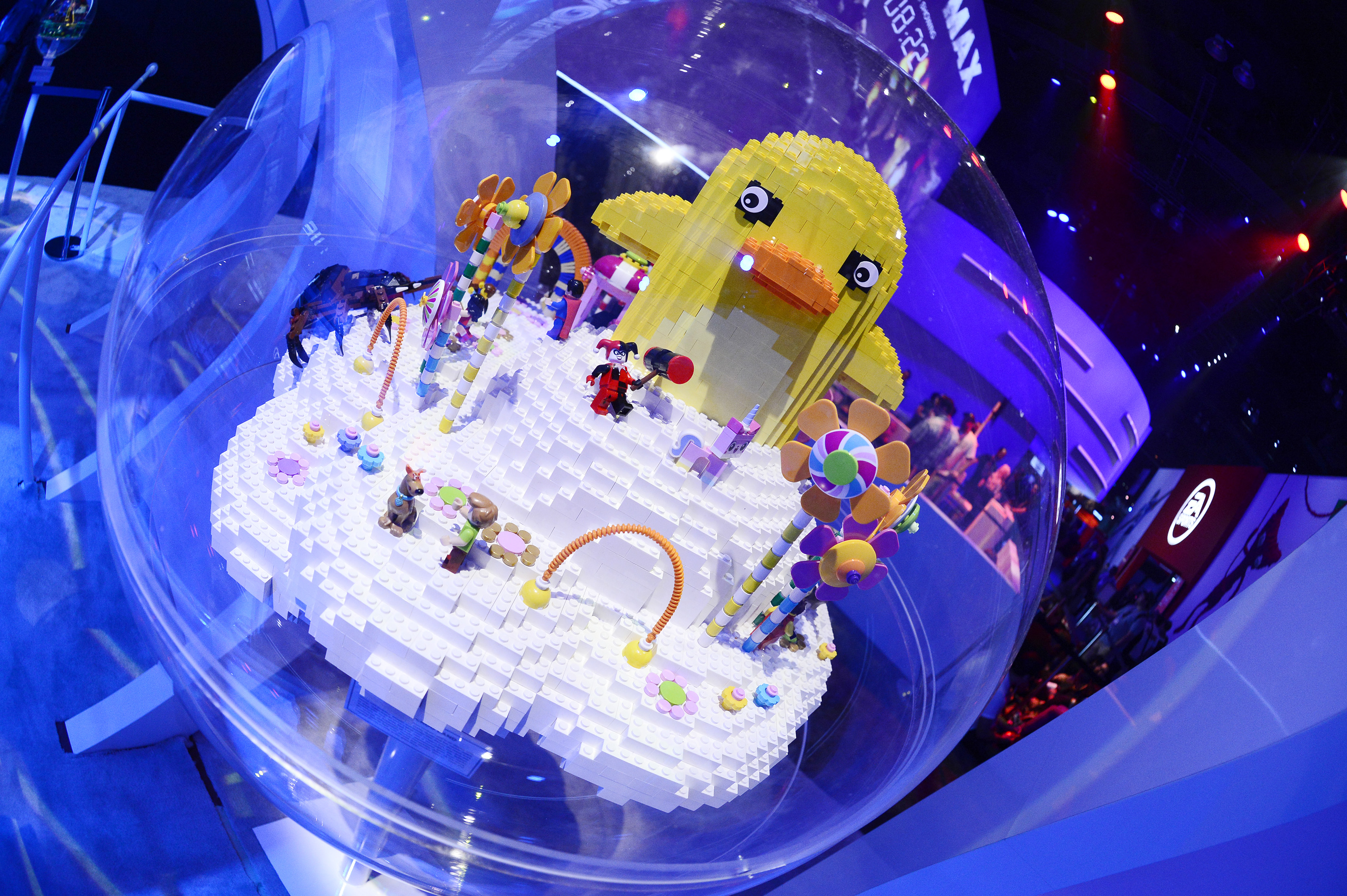
The Cloud Cuckoo Land set for Lego Dimensions, the Lego action-adventure video game is displayed at the E3 Electronic Entertainment Expo in Los Angeles, California on June 18, 2015. The world’s leading video game show ended with the industry feeling renewed vigor after years of worry that play on mobile devices was leading to decline. AFP PHOTO/ ROBYN BECK (Photo by ROBYN BECK / AFP)
SAN FRANCISCO — The knock-down, drag-out battle in the video game world heads to the cloud as the premier industry event looks to adapt to a consumer shift to streaming services.
New blockbuster titles will be on center stage as usual at the annual Electronic Entertainment Expo (E3) opening in Los Angeles on Tuesday, but the big question for the sector will be how consumers play.
The E3 opens with gamers gradually moving away from traditional console play and Google seeking to capitalize on that trend with a new Netflix-style service allowing people to play cloud-powered games on any connected device.
Adapting to the new trends will be critical for players in the massive video game industry which last year generated more than $135 billion globally, and $43.4 billion in the United States.
According to the Entertainment Software Association, which runs E3, more than 164 million adults in the United States play video games, and three out of four US households have at least one video game player.
‘Access wherever, whenever’
Xbox maker Microsoft will hold a keenly anticipated press event on Sunday where it is likely to say more about its Project xCloud, a streaming video game service it recently began letting employees test outside the office.
“Microsoft will play a major role at this E3 as it lays out its vision for a hybrid future of getting people access to content wherever, whenever,” NPD video game analyst Mat Piscatella told AFP.
Major games expected to be shown off at E3 included new installments of Call of Duty, Apex Legends, FIFA, Pokemon, and Tom Clancy’s Ghost Recon.
At least some of those titles will be available on Google Stadia later this year, which has inked a deal with French-based video game giant Ubisoft.
“Streaming is going to be what we think about at E3,” said Yves Guillemot, co-founder and chief executive of Ubisoft.
“It is really fantastic. It is a way to reach more players.”
Streaming games from the cloud could make console-quality play possible on all kinds of internet-linked devices, and let the massive power of data centers be used to ramp-up features, graphics, effects and the number of simultaneous players, Guillemot noted.
Playing together
Microsoft and Sony last month announced an alliance to improve their platforms for streaming entertainment from the internet cloud.
Sony, whose PlayStation consoles are a key force in the industry, won’t be holding an E3 event this year, but Microsoft may provide more insight into its collaboration with its Japan-based console rival.
Microsoft’s Azure cloud computing platform will be used by the companies to support game and digital content streaming services, according to the two firms.
Google on Thursday released new details about Stadia, which will be available in 14 countries starting in November.
For the launch, Google will sell its “founders edition bundle” hardware pack for $129, with a monthly subscription price of $9.99. In Europe, the price will be 129 euros and 9.99 euros per month.
The Stadia tech platform aims to connect people for interactive play on PCs, tablets, smartphones and other devices.
The new gaming platform disrupt the gaming industry by allowing users to avoid consoles and game software on disc or download.
Subscribers will have access to free games and will be able to purchase some blockbuster titles as well. The first free title will be the shooter game Destiny 2 from developer Bungie.
Stadia will launch in the United States, Britain, Belgium, Canada, Denmark, Finland, France, Germany, Ireland, Italy, the Netherlands, Norway, Spain and Sweden.
Time of transition
NPD analyst Piscatella expected a few surprises at Xbox and Ubisoft press events being held before E3 opens its show floor as the industry gears up for the cloud and new-generation consoles.
“We’ll get peeks at products and concepts that won’t really potentially impact the market meaningfully until perhaps mid-2020 or later,” Piscatella said.
Wedbush Securities analyst Michael Pachter told AFP the new games will remain the stars of the E3 show this year.
“This is a software and streaming show, not much on the hardware front,” he said. (Editor: Mike U. Frialde)